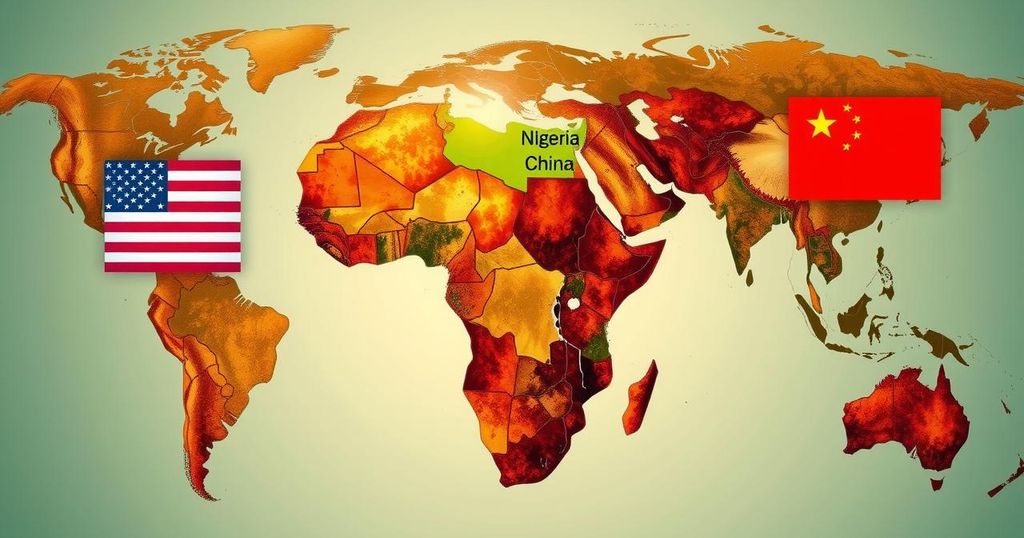Kenya and Nigeria struggle under the weight of historical leadership failures, emphasizing consumption over industrial growth. Jomo Kenyatta’s Kenya and Yakubu Gowon’s Nigeria both epitomize corruption and import dependency, which have led to severe socio-economic disparities and ethnic tensions. The article illustrates how these patterns have persisted and resulted in modern-day challenges for both nations.
Kenya and Nigeria have historically been marked by political and economic challenges, characterized by a preference for consumption over industrial growth. Kenyatta, Kenya’s first leader, notably rejected revolutionary ideas from Chinese officials, preferring Western-backed loans to buy land from Europeans rather than empowering the populace. His regime’s corruption mirrored that of Nigeria under Gowon, where oil wealth fueled import dependency rather than national innovation. Both nations faced ethnic divisions and political turmoil, exacerbated by leaders’ failures to unite and advance their economies in a meaningful way. Including Alderido’s manipulation of unrest in Nigeria and Kenyatta’s division among ethnic lines highlights a pattern of disillusionment that ultimately led to violence and corruption, undermining their development and resilience. Both nations’ ruling classes failed to harness national resources and instead allowed foreign imports to dominate, creating an unsustainable economic framework. The legacy of these choices continues to resonate today, as both countries grapple with ethnic tensions and a lack of cohesive national identity. Rather than learning from historical failures, the elites perpetuated cycles of exclusion and hostility, risking the integrity of national governance. In the end, Kenya and Nigeria remain entangled in the complex interplay of colonial history, leadership failures, and socio-economic disparities fueled by import dependency.
The article discusses the historical neglect of industrialization and economic independence in Kenya and Nigeria. Starting with Kenya’s colonial legacy and Jomo Kenyatta’s leadership, it contrasts this with Nigeria’s struggles under Yakubu Gowon. Both nations’ inability to pivot towards innovation and independence has perpetuated cycles of ethnic division and economic despair, as leaders chose to favor consumption of imports over local production and industrialization.
Ultimately, the article emphasizes that both Kenya and Nigeria are beset by the historical consequences of leadership choices that prioritize short-term gains and foreign dependencies over long-term national development. The implications of these decisions have led to cycles of corruption, unrest, and a fractured national identity. To forge a sustainable path forward, both countries must address these legacies by overcoming ethnic divides and fostering innovation-driven economies that empower their citizens.
Original Source: www.thisdaylive.com




